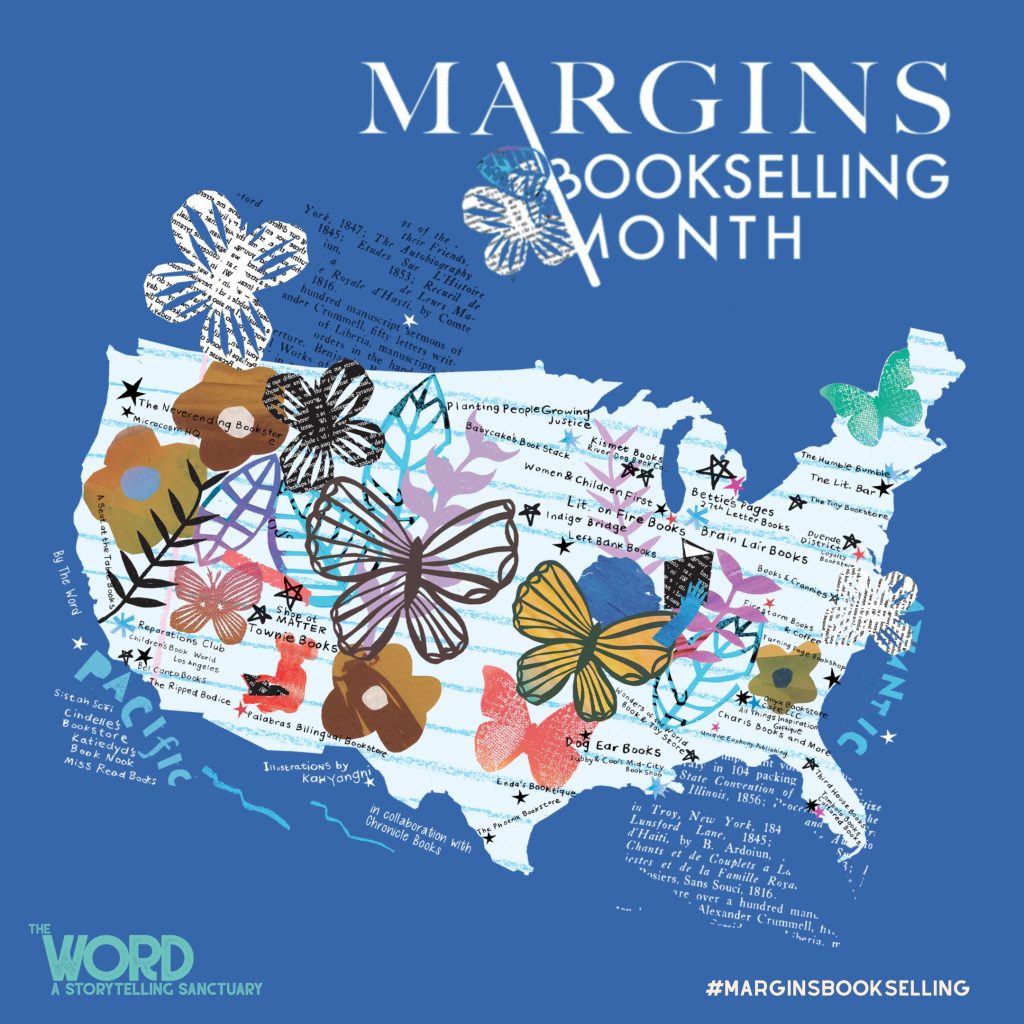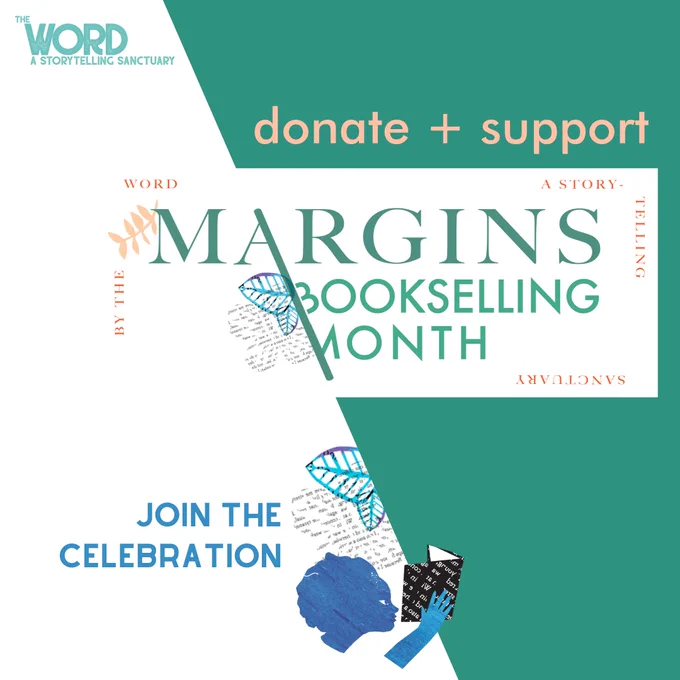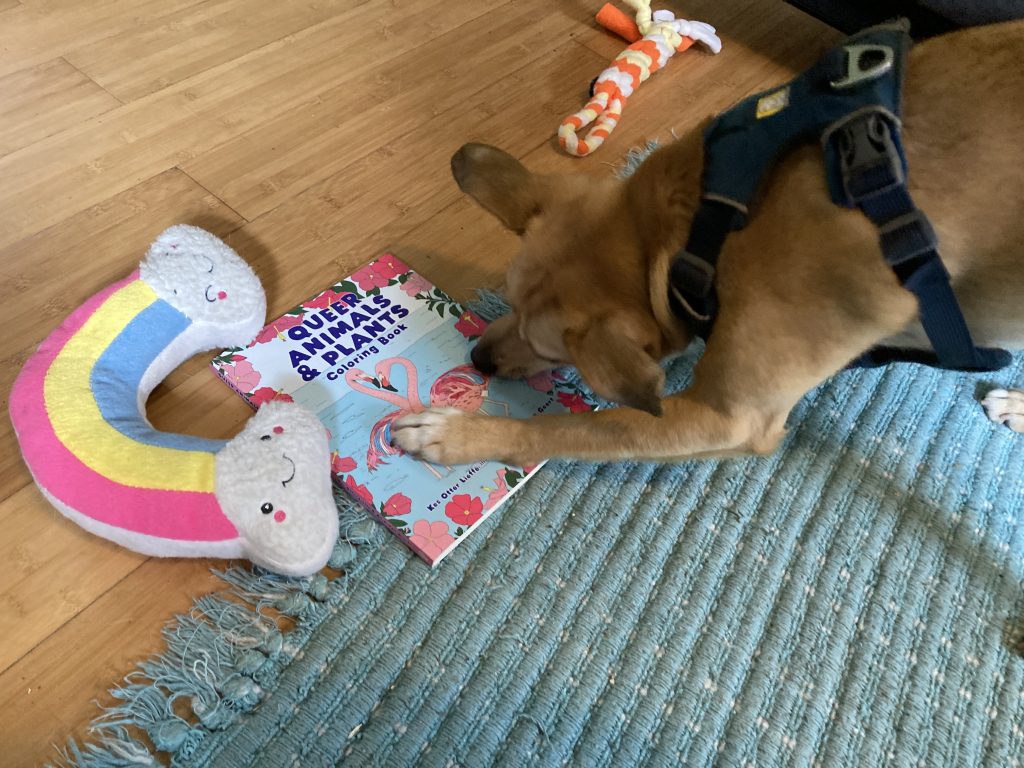Blogifesto: August is #MarginsBookselling Month! (An Interview with The Word)
We got to chat with Aida Lilly, the Program Coordinator of The Word, a Storytelling Sanctuary, which organizes the annual Margins Bookselling Month.

What is The Word, a Storytelling Sanctuary?
We are a literary arts non-profit whose mission is storytelling for collective abundance. We believe in the power of storytelling, representation, and expanding models in the literary and publishing communities. Our mission is to promote voices from underserved communities and diverse backgrounds, to honor the stories of those who have faced adversity and injustice, and to provide a sanctuary space where these groups can see themselves in literature.
We host community programming and generally try to demystify the ins and outs of publishing, which is overall an opaque industry that tends towards insularity. Our major programs include: the Editor-Writer Mentorship, [margins.] Literary Conference + Book Festival, #MarginsBookselling (of course), and a host of publishing workshops and community events.
Overall, we love books and reading and the folks who dedicate their lives to the written word, and we believe that access to books and knowledge about careers in publishing (and publishing as a whole) are important.
What is #MarginsBookselling Month?
#MarginsBookselling Month is a celebration of bookstores owned and managed by and for BIPOC, LGBTQIAP2S+, disabled, and neurodiverse communities and of booksellers who identify from these communities as well. This is a community collaboration coordinated by The Word. Booksellers are on the frontline of the industry, and we want to celebrate and uplift them!
It’s a month of spreading joy and awareness of these wonderful stores and booksellers and a way of thanking them for doing the important work they do. There’s more to being a community bookstore than just selling books, and these stores exemplify the extraordinary efforts of bookstores and booksellers actively trying to improve the lives of those in their communities.
You can check out all the bookstores in The Word’s #MarginsBookselling network by checking out the interactive map here.
What inspired it?
Inequity is clearly visible in our industry, from the books being published to the demographics of employees in publishing itself. We recognize that books and bookstores are more than just sales and retail, and we see the power of indie bookstores. Diversely-owned bookstores are especially important to marginalized communities, and also to publishing at large. They can provide a third space and safe space to hold and share stories from BIPOC, LGBTQIA2S+, disabled and neurodiverse communities. Bookstores that center marginalized communities provide both shelter and education.
Likewise booksellers are part of the foundation of this industry. They know what books their community members need and are looking for. Indie bookstore sales matter to their community, and to publishing as a whole. It is booksellers who know what recommendations are relevant to their area and specific customers, and those recommendations can have massive impact, especially for authors that aren’t established, “big” names. Passionate booksellers and bookstores change lives for their customers and for the authors that fill their shelves.
There are not enough spaces where we celebrate this work and take time to learn from it. #MarginsBookselling Month is a chance to shine that spotlight and to give our cohort of bookstores and booksellers a chance to do what each does best, while also getting to know each other in community.
What’s so great about indie bookstores? Why focus on them?
We love bookstore stops on every road trip we take! We cherish open mic nights at our local stores. We can’t resist stopping in for a coffee even if our TBR piles are never-ending and we swore we wouldn’t buy another book today.
Reading is its own sort of magic. Books can be gates, windows, mirrors, doors, escape, comfort. Indie bookstores and booksellers can have a few minutes of conversation with someone and help them find entire new worlds to learn about, to love, or to live in.
Real people will always understand us better than algorithms. And indie bookstores are plugged into the communities they serve in ways that are unmatched by other industry retailers.

What has surprised you the most in the last few years of #MarginsBookselling Month?
It is beautiful to see the members of this community lift each other up and create an atmosphere of abundance where there is room for everyone. In many spaces, retail especially, there is often an enmity toward anything perceived as “competition” –and that has not been present at all in this environment. Everyone is always excited to celebrate each other! It’s definitely become a team of its own, and we love all the love!
How can people get involved and support The Word and #MarginsBookselling Month?
There are numerous ways to be involved:
Support #MarginsBookselling bookstores every month. Learn who they are. Spend some time with them, and see how happy they’ll be to fill your shelves with books you’d never find on your own, and are support systems that can help you find connection and community.
If you don’t have a #MarginsBookselling store near you that you can visit in-person, check out the interactive #MarginsBookselling Map, and support these stores by shopping online, either through their own website or on Bookshop.org. If you’re an audiobook listener, you can support your local or favorite #MarginsBookselling store by choosing them as your supported store on Libro.fm.
Additionally, here are a few great ways to get involved with The Word’s #MarginsBookselling Month:
- Make a one time or recurring donation to The Word help support programming like #MarginsBookselling Month
- Donate to the Duende-Word BIPOC Bookseller Award
- Purchase a copy of the beautiful #MarginsBookstores Month journal on Bookshop
- Buy this amazing T-shirt with a special quote from Pulitzer and National Book Award Finalist and The Word’s Writers’ Circle Member, Ingrid Rojas Contreras
- Amplify The Word’s programs and events on your social media channels, and feel free to tag us!
- Reach out to us at info@thewordfordiversity.com to learn more about all the sponsorship and partnership opportunities that are available!
What are two books you think everyone should read right now?
We love Mariame Kaba–everyone should check out her titles! And, of course, National Book Award and Pulitzer Finalist The Man Who Could Move Clouds by Ingrid Rojas Contreras. Ingrid is a wonderful human who we were thrilled to collaborate with last year’s #MarginsBookselling Month, celebration and said:
“The Word is doing the labor that matters most — uplifting BIPOC booksellers and giving the floor to authors and writers who are writing from the margins. What happens when the margin takes centerstage? I feel a new literature and culture emerges, one that can define and tell of what has gone ignored or untold before. I am so thrilled to be joining The Word’s Writers’ Circle and look forward to supporting their mission.”
We’re grateful to Aida to take the time to answer our questions! If you want to learn more about The Word, their social media handles are:
- Facebook @wordfordiversity
- Twitter @wordisdiversity
- Instagram @wordisdiversity
- Youtube: @wordisdiversity
This is the first installment of the year-long Bookstore Solidarity Project, where we’re featuring indie bookstores and the people that love them. Want to learn more about supporting bookstores in your community? Check out How to Protect Bookstores and Why by Danny Caine!
